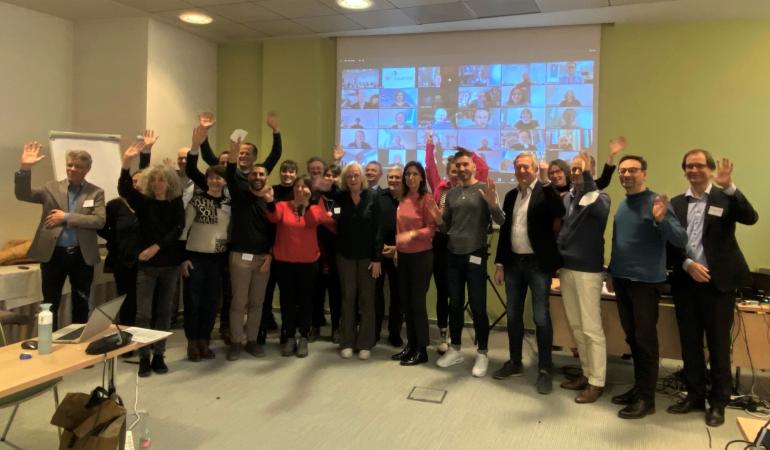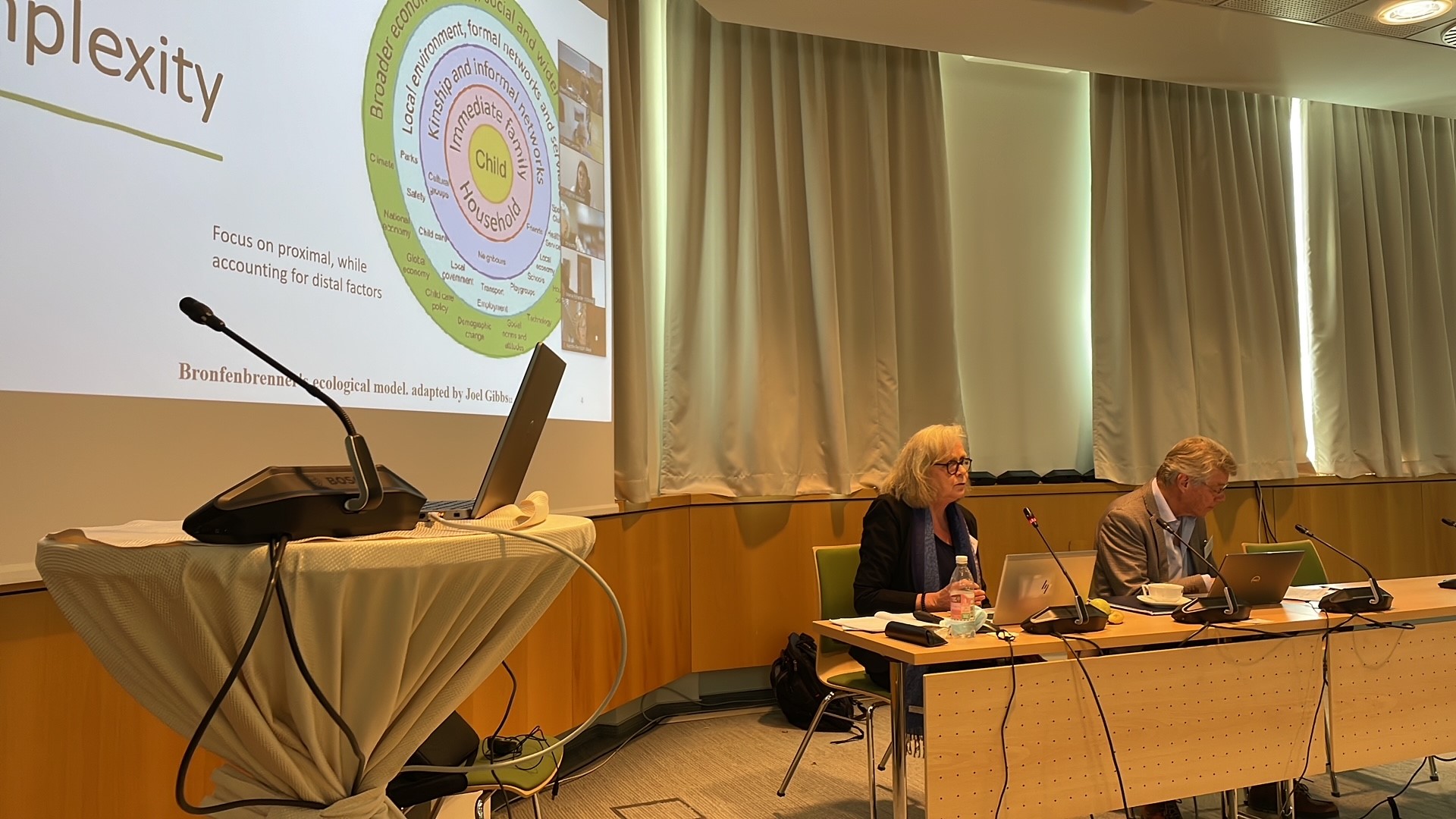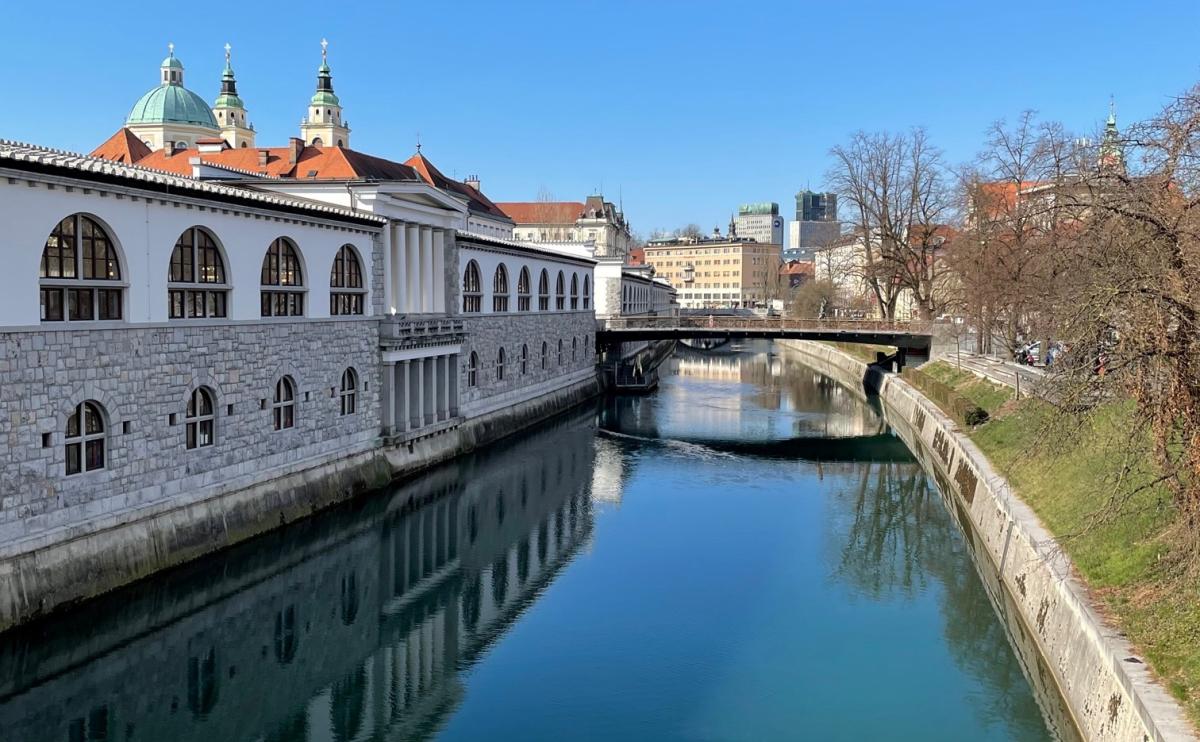
Equal-Life project Stakeholder Forum and Consortium Meeting. Held March 7-9, Ljubljana, Slovenia
A warm welcome to Ljubljana
After restriction for travel and to live meetings due to the COVID pandemic, we were excited at NIJZ National Institute of Public Health to host the third Equal-Life consortium meeting in March 2022, in hybrid format.
Ljubljana is the capital city of Slovenia and declared the European Green Capital back in 2016; showing success in local efforts to improve the environment, economy and quality of life in the city. Right upon arrival, a short tour around the city informed the meeting participants about the history of Ljubljana: from prehistoric pile dwellings through Roman Emona, to present days with an important inter-war period work of the architect Jože Plečnik that gave the city its own character.
Engaging with stakeholders
Equal-Life’s first Stakeholder forum held a day prior to the consortium meeting was attended by 25 people in-person and about 20 people online. Among the participants were people from Slovenia, Croatia, Finland, Italy, Netherlands, Sweden, Macedonia and Germany. The discussions were set up around three themes, each introduced by a Mentimeter survey. The three themes included: 1) The scale on which results should focus; 2) including the impact of environmental factors on mental health in all policy making; and 3) setting up effective youth participation.
New fora are planned in October and November 2022.
Consortium gets to work
The Consortium Meeting started on day two and was attended by 30 people in-person and 60 online. The aim of the annual consortium meeting is to present the project’s progress, to review and discuss the difficulties encountered and options for improvement and continuations of the work. Part of the consortium meeting is the meeting of the Executive Committee (ExCo) in which decisions are made, amendments discussed and the process is evaluated by one of the members of the External Advisory Committee (EAC). Erik Lebret, former CSO at the National Institute for Public Health and the Environment (RIVM) in the Netherlands chaired the 2-day meeting. Project coordinator Irene van Kamp (RIVM) kicked off with a general overview of the Equal-Life project, open for stakeholders from Slovenia and other countries to join. Stakeholders were invited to engage in the meeting and introduced to the Equal-Life project and its tools which aim to help create a healthier living environment for children and young people to grow up in.
This opening session was followed by an internal meeting for the consortium members, including the EAC and the External Ethics Board (EEB), and an ExCo meeting composed of Work Package (WP) leaders and EAC representatives. Leaders of the WPs, young researchers and others within the project got the opportunity to present and reflect on their work to date.
Irene van Kamp and Erik Lebret, coordinator and chair
‘Food for thought’ from keynotes Tommi Laitio & Anne Bremer
Two keynote speakers were invited to inspire and inform the participants on topics related to Equal-Life’s challenges. Keynote Tommi Laitio (Bloomberg Public Innovation Fellow, Johns Hopkins) closed the first day with his presentation 'From information to interventions', stressing the important role of stakeholders in Equal-Life research. His good practice cases inspired consortium members and stakeholder’s further discussions.
Dr. Anne Bremer (University of Bergen) opened the second day with her presentation 'Interdisciplinarity: how to bake a cake with no recipe?', emphasizing the interdisciplinary character of Equal-Life. She highlighted the importance of interdisciplinary work regarding complex issues, such as the exposome and its effect on mental health and cognitive development in young people, as they relate to several sectors and include various actors. Her insights and takeaways provided food for thought for the breakout sessions to follow, in which consortium members discussed several topics in interdisciplinary teams.
Important inputs were provided at the end of the consortium meeting by the EAC, the EEB and the project officer of the European Commission. The main messages included that it is now time for integrating the different parts of the project, that the interdependencies between nearly all of the Work Packages and their respective teams form a major challenge, and lastly that a more intensive dialogue between the Ethical Board and the empirical projects with regard to gender and diversity aspects is needed.
In person meet-ups strengthen collaboration
For this hybrid meeting we were happy to welcome one third of the whole consortium in-person and everyone else online. All members but one of the EAB, the EAC and the EC project office joined online as well. The meeting was lively and successful and the hybrid setup worked well thanks to good preparations and technical support. It proved once again how meeting in-person and outside a formal program to exchange ideas, experiences and plans adds up to a great atmosphere and good collaboration.
We look forward to our next meetings that, among others, will focus on co-creation with stakeholders, as well as further collaboration with Exposome projects within the European Human Exposome Network. Our next consortium meeting will take place in Stockholm in early April.
Sonja Jeram – senior researcher NIJZ
Equal-Life Project Management Office
Ljubljanica river, Ljubljana

